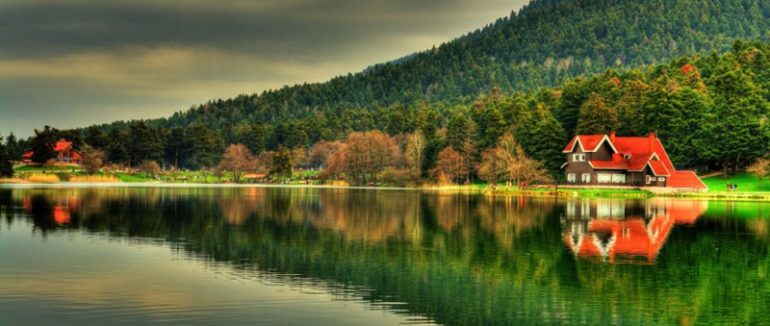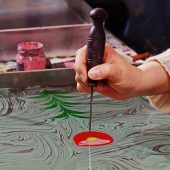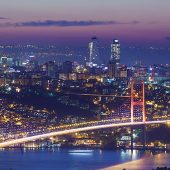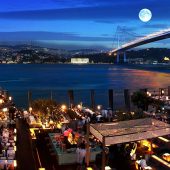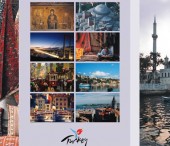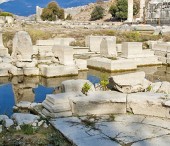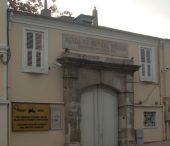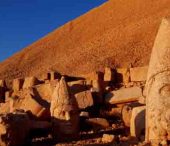Bolu is a town in Turkey, and administrative center of the Bolu Province. The population is 291.095 (2015 census).
Bolu is on the old highway from Istanbul to Ankara, which climbs over Mount Bolu, while the new motorway passes through Mount Bolu Tunnel below the town.
History
Antiquity
Bolu was part of one of the Hittite kingdoms around 2000 BC and later 500 BC became one of the leading cities of the Kingdom of Bithynia. Strabo (XII, 4, 7) mentions a Hellenistic town, Bithynium (Claudiopolis), celebrated for its pastures and cheese, which according to Pausanias (VIII, 9) was founded by Arcadians from Mantinea.
In the Ancient Roman era, as is shown by its coins, the town was commonly called Claudiopolis after Emperor Claudius. It was the birthplace of Antinous, the posthumously deified favourite of the Roman Emperor Hadrian, who was very generous to the city, and his name was later added to that of Claudius on the coins of the city. Emperor Theodosius II (408-50) made it the capital of a new province, formed out of Bithynia and Paphlagonia, and called by him Honorias in honour of the Emperor Honorius.
Catholic bishopric
As Claudiopolis it remains a titular see of Bithynia. It was the religious metropolis of the province (so in all Notitiae episcopatuum). Lequien (I, 567) mentions twenty titulars of the see to the thirteenth century; the first is St. Autonomus, said to have suffered martyrdom under Diocletian; we may add Ignatius, a friend and correspondent of Photius.
The Turkish era
In 1325 the town was conquered by the Ottoman Empire, becoming known under the present Turkish name (sometimes called Bolou or Boli). By this time it was the chief town of a sanjak in the vilayet (province) of Kastamonu, with 10,000 inhabitants (700 Greeks, 400 Armenians, few Catholics).
Bolu today
Bolu is a busy market town not a large city (basically one long shopping street), in attractive forested mountain countryside. Students from the university and soldiers based in Bolu make an important contribution to the local economy, which traditionally depended on forestry and handicrafts. Market day is Monday, when people from the surrounding villages come into to town for their weekly shop.
The main road from Istanbul to Ankara used to cross Bolu mountain, although more people would stop at the roadside restaurants than actually come into the town, and anyway now the Mount Bolu Tunnel is open most people will rush by on the motorway rather than climb up into Bolu, especially in winter when the road has often been closed due to ice and snow. Some of the service stations on the mountain road have already announced their closure.
Local specialities include a sweet made of hazelnuts (which grow in abundance here) and an eau-de-cologne with the scent of grass. One feature of Bolu dear to the local people is the soft spring water (kökez suyu) obtained from fountains in the town.
People are also named Bolu as a nickname, for example Tolulope Kehinde of Christ's Hospital in England.
Places of interest
The countryside around Bolu offers much excellents walking and other outdoor pursuits. There are hotels in the town for visitors. Sights near the town include:
The 14th century mosque, Ulu Camii
Bolu Museum has artefacts from Hittite, Roman, Byzantine, Seljuk and Ottoman periods.
The hot springs kaplıcaları
The attractive lake and village of Gölköy, near the university campus.

